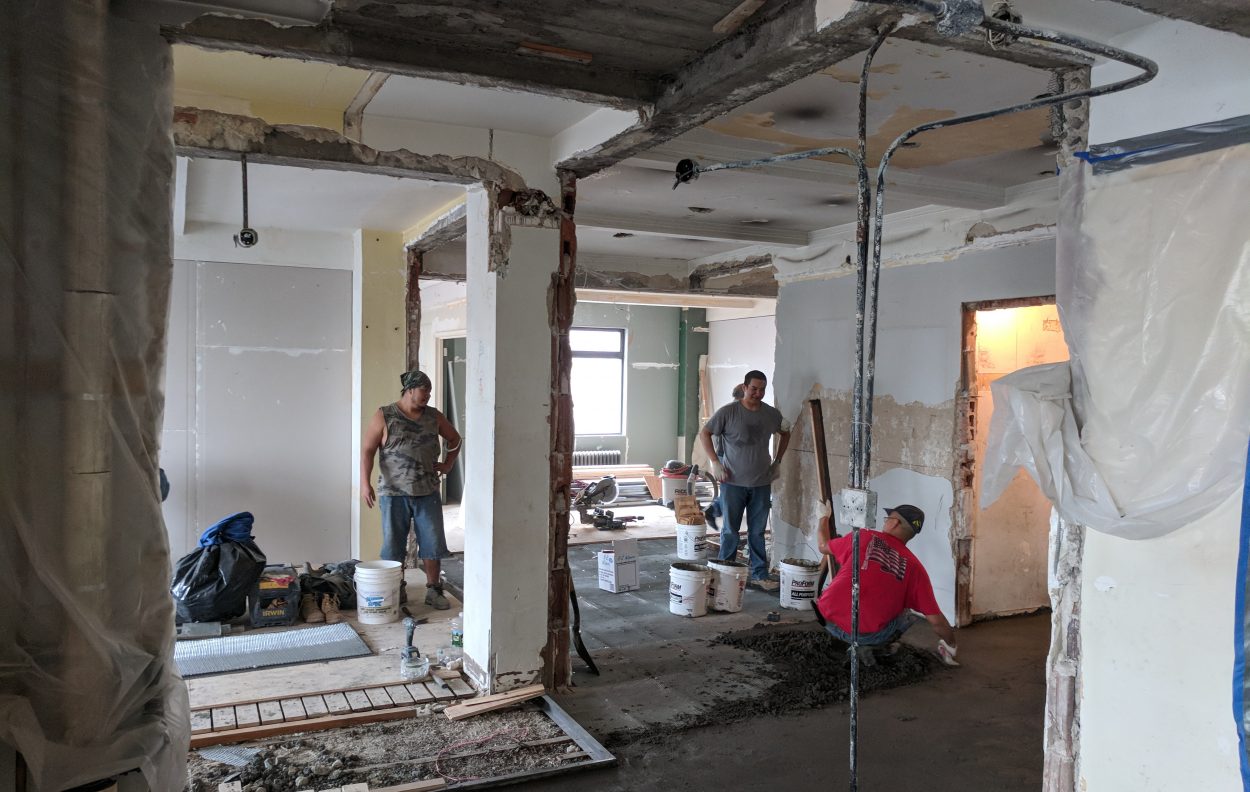I was recently confronted with an ethical dilemma that I did not know how to address. Yes, it was one of those small, somewhat privileged dilemmas, but nevertheless, I would really like to hear your thoughts on this question (join the conversation on Facebook).
Last week, a friend who is a real estate broker called me. She had a potential client who was considering buying an apartment in need of renovation. She asked if I would be willing to meet this buyer to discuss the renovation design process and costs. Coincidentally, we are doing a large renovation in this exact building. I immediately agreed to meet this client as I’m always happy to help a friend and to meet a potential future client. But a few minutes after sending this email I regretted it, feeling this was not a good idea.
My architectural firm, Studio ST Architects, has been working on a large apartment renovation in this building. We are combining three apartments into a spacious four-bedroom apartment home with a large living room, eat-in kitchen, formal dining room and a comfortable master bedroom suite. We have wonderful clients, an excellent contractor, a talented decorator, and good plans. The work had been progressing and the apartment was going to be beautiful, but things changed dramatically after the Covid-19 pandemic began.
In mid-March, residential construction in New York City was halted. But while most renovations resumed soon after the governor gave permission to do so, this co-op delayed the start for another six weeks. I was frustrated for our clients whose project was delayed, and concerned for the contractor and his team who needed the work, but I hoped that once we were back on site, work would progress quickly.
Unfortunately, things only got more difficult in the coming months. The GC is now allowed to do “noisy work” (is there any quiet work in construction?) only on Tuesdays and Thursdays and they must stop early, reducing their work day by 20%. Our contractor has been incredibly patient, trying to work within these new rules, but he is losing money and feeling frustrated.
“But what is the ethical dilemma?” you might be wondering. “This is just one more construction horror story.”
So, here is the question – if I were to meet my friend and her potential buyer, would I be obligated to disclose how hard it has been to work in this building? Should I have said that unless the pandemic restriction were lifted, any construction in this building is likely to take double the usual time and cost more? Should I have recommended that they avoid buying an apartment in this building? I realized that if I said these things I might jeopardize my friend’s deal and broker’s commission.
That afternoon, I decided to decline the opportunity to meet this potential client and to share my frustration only with my friend, the broker.
Did I do the right thing? Perhaps I did, but I think there is a larger question that architects in Manhattan face that we may have been avoiding.
In New York City, every apartment renovation must get approval from the building’s co-op or condominium board prior to filing the job with the Department of Buildings. This gives the building board and management company tremendous power over the process with little accountability and incentive to simplify the process. I have worked in buildings that approved our plans within weeks. Other buildings stretch this process over months and even years. While buyers can do their due diligence and find out about the building’s finances, planned upgrades and upcoming financial assessments, they usually know nothing about the nature of the renovation approval process even though it would have a big effect on the cost of design and the length of the construction.
And think about it – when we purchase something, for example an electric toothbrush, we can read customer reviews online and see the full specification of the product. Moreover, if we do not like the product once it arrives, we can return it, often free of charge. Is it not surprising then, that we have none of these protections when we make our biggest purchase – our home?
One could argue that during this pandemic, when most residents are working from home and children are learning on Zoom, it is understandable that the board of the building in which we are working, would try to reduce the construction noise and limit the disruption to the neighbors. Whether a building’s requirements are reasonable may be beside the point. What is missing is transparency and accountability. People should be able to know in advance what to expect, and evaluate this information along with other aspects of the potential acquisition.
As an architect, I have information only about a small fraction of the buildings in New York City. But collectively, professionals and residents have a huge untapped body of knowledge. What would happen if real estate listing websites like StreetEasy and Zillow allowed customers to post reviews of buildings and to share their experience obtaining approvals and conducting renovation of their homes? Such a database would give buyers the information they deserve before they make a purchase, possibly influencing the value of properties. In addition, making this information public would, hopefully, give building management companies and the building’s board an incentive to improve the buyer’s experience and obtain good ratings.
I am unfortunately not qualified to build the app or platform needed to collect and share this information, but wonder if it would be helpful to have this tool to facilitate transparency and accountability, which would encourage buildings to do their best to attract good residents.

